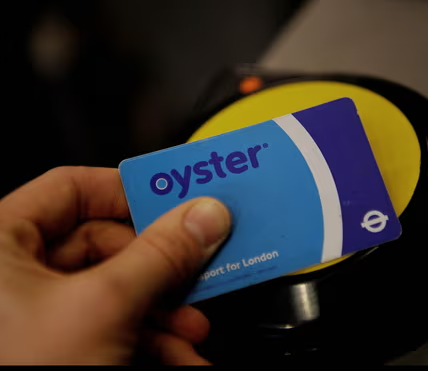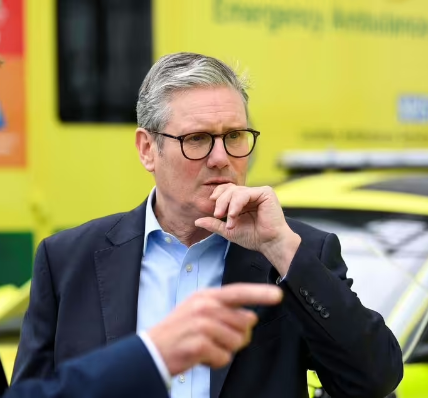Culture secretary says civil society groups should ‘tell government when we’re getting it wrong’

Lisa Nandy said publicly speaking out was ‘critical to a healthy, functioning democracy’. Photograph: Christopher Thomond/The Guardian
Charities should criticise the government if they disagree on controversial policies areas such as immigration or the environment, the UK culture secretary has said, as she announced plans to restore civil society organisations to “the centre of our national life”.
Lisa Nandy said publicly speaking out was “critical to a healthy, functioning democracy” and that charities should “tell government where we’re getting it wrong and work with us to set it right”. She indicated they should no longer be told to “stick to their knitting”, a reference to a criticism by a previous Conservative government that charities had strayed too far into politics.
She spoke to the Guardian as she unveiled a new deal between the government and the £54bn-a-year charity sector that aims to give charity bosses greater influence and enlist them in the delivery of Labour’s five core missions.
The prime minister, Keir Starmer, told charity bosses at a Downing Street reception on Thursday: “To fix the foundations of our country we need a fundamental reset of the relationship between government and civil society.
“By harnessing the dynamism, innovation and trusted reach of civil society organisations, we can boost growth and deliver better outcomes for communities right across the country.”
The move represents an outbreak of peace after a bruising few years for charities. The National Trust and the Runnymede Trust, for example, were attacked by Conservative politicians for their interventions on matters including colonialism, slavery and modern-day racism.
In 2021, Oliver Dowden, the then culture secretary, also complained about charities being “hijacked by a vocal minority seeking to burnish their woke credentials”. Last year, the Royal Society for the Protection of Birds was accused of straying from “nesting boxes and bird feeders” when it posted on social media that government ministers were “liars” after they weakened environmental protections.
“I wouldn’t be happy about being called a liar, but that’s not a question for government to police what people can and can’t say,” Nandy said.
But with many charities facing collapse amid rising costs, falling incomes, declines in volunteering and rising demand, Labour’s new deal with civil society – including charities, voluntary organisations and trade unions – came with no guarantees to boost funding.
Charities have complained they are expected to deliver public services on the cheap, with most obliged to subsidise public sector contracts with voluntary income equivalent to £2.4bn a year. Nandy could not say if that would rise or fall under Labour.
Speaking in the week that the Salford Lads Club and a hospice for infants in Liverpool were the latest charities to say they are facing closure, she said: “We’re acutely aware of the fragility in the sector and the strain that charities are under.”
“We are seeing more closures, and it does tend to be at the smaller end [of the sector],” said Sarah Elliott, the chief executive of the National Council for Voluntary Organisations. “Charities delivering public service contracts are [particularly] struggling because the contracts are not keeping up with inflation.”
She described the deal as a “foundational moment”.
“We want regular contact with the Treasury,” she said. “They meet the business bodies regularly, but they should be meeting civil society regularly. We are an important part of social change, but an important part of [economic] growth too.”
Nandy said: “I think that will change.”
Charities employ 1.1 million people in England, so any increase in employers’ national insurance contributions, floated as a likely change in this month’s budget, would only strain their finances further.
Nandy would not be drawn on the impact, but said: “We are already talking to civil society organisations in advance of the budget. We’re keen to get their views and to understand the pressures that they face.”
Tony Armstrong, the chief executive of Locality, which represents 1,800 local community organisations, welcomed the reset, saying the previous government lacked interest in their ideas. But he called for “something more concrete in terms of long-term planning”.
With the government reportedly planning to make £40bn in tax rises and spending cuts, imminent new money to support charities looks unlikely.
Nandy said the government had begun nudging potential philanthropists to invest in the areas they came from – something she has seen happen in Wigan, where the owner of the football and rugby league clubs, Mike Danson, has invested in the community. “We’re actively pursuing a strategy that will build that network and then connect it to those communities,” she said.
Citing the 25% gift aid tax break on donations by UK taxpayers, which delivers about £1.6bn to good causes annually, she said her team was also looking into ways to incentivise the wider population to give.
She also said she would examine a proposal to require financial advisers to the wealthy to suggest their clients might make donations, which research by Pro Bono Economics has estimated could deliver an extra £1.1bn a year in donations to charity.
After her predecessor Dowden called on heritage charities not to focus excessively on Britain’s empire, Nandy said charities had “an important role to play in helping to reflect the very rich history of this country in all of its light and shade”.
As a good example, she cited the 2012 London Olympics opening ceremony, which “didn’t shy away from the light and the dark in our past, that celebrated the great strengths that Britain has and looked to the future”.




